FCC's Tom Wheeler wants to protect internet users' privacy by limiting ISPs' personal data usage
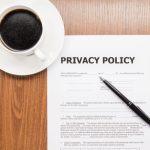
The chairman of the Federal Communication Commission has put forward a set of proposals to protect internet user's privacy. Tom Wheeler wants to place limits on how ISPs are able to use customer data in much the same way that phone companies are regulated.
The amount of unencrypted data ISPs have access to which can be used for advertising and marketing worries Wheeler. The FCC already governs how phone companies can use and resell customer data, and he believes the same rules should be applied to ISPs. More than this, he wants to empower customers so they can choose precisely how their data is used.
Verizon will have to pay $1.35m fine over 'supercookie' tracking
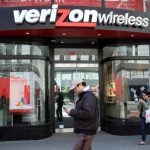
The Federal Communications Commission (FCC) has announced that it has found Verizon Wireless to have deliberately violated the privacy of its users.
Verizon Wireless is the largest US carrier with over 100m subscribers, but failed to disclose the practice of using supercookies in order to violate their users privacy from late 2012 until 2014, violating a 2010 FCC regulation on Internet transparency.
Now that Google Glass is enterprise-only, it is more appealing than ever
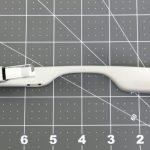
The first generation of Google Glass spectacularly failed to get off the ground despite a long beta period. The second generation is on the cards, and it has an enterprise focus which serves only to make the hardware even more appealing. There's no release date, or even a vague schedule for release, yet, but images of the next version of Google Glass have appeared online.
A new filing with the FCC shows just what we can expect from the next version of Google Glass, and it's extremely promising. While there's no suggestion of a consumer model being released, what we learn about the enterprise edition will serve only to make it more appealing to the masses -- great looks, a foldable design, and a larger display. Will Google bow to the pressure that's almost certain to mount and try again with a consumer version?
Net neutrality on trial: judges hear lawsuits against FCC

The Federal Communications Commission finds itself in court today, as the hearing gets underway to determine the legality of net neutrality rules. A total of 10 lawsuits have been brought against the commission by a number of cable and telecoms companies.
Earlier in the year the FCC banned service providers from creating internet fast lanes that could have been used to give those willing to pay for it a faster service, or to offer certain types of traffic preferential treatment. This could be the hearing that decides once and for all whether the idea of treating all web traffic equally is a workable option.
FCC says it's legal to hack your router
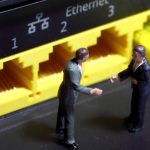
Router hacking is a geek staple. No computer geek worth his or her salt would consider running vanilla firmware -- the likes of Tomato are where it's at. A little while back, the FCC suggested plans to ban such hacking via open source firmware... or at least that's how it seemed.
The commission has now acknowledged that there was more than a little confusion from people who believed that manufacturers would be encouraged to prevent router modifications. The FCC wants to make it clear that most router hacking is fine and will remain fine. With a few exceptions, that is.
Privacy blow as FCC says websites can ignore Do Not Track requests

People are more concerned than ever before about online privacy, and this is the very reason Consumer Watchdog filed a petition to force websites to honor Do Not Track Requests. The Federal Communications Commission handed down a ruling which is not going to please privacy advocates.
In short, the FCC has said that websites should be under no obligation to take notice of Do Not Track requests. The commission dismissed Consumer Watchdog's petition that called for 'edge providers' -- such as Google, Facebook, YouTube, Pandora, Netflix, and LinkedIn -- to respect people's privacy if they enabled the Do Not Track option in their web browser.
FCC votes to subsidize broadband connections for low-income households

Today the FCC voted in favor of updating its Lifeline program to include broadband. This would mean that households surviving on low incomes would be able to receive help paying for a broadband connection. It might not be as important as electricity or water, but having a broadband connection is seen as being all but essential these days.
From helping with education and job hunting, to allowing for home working, the ability to get online is seen as so vital by some that there have been calls for it to be classed as a utility. The Lifeline program has been running since the 80s, and originally provided financial help to those struggling to pay for a phone line. It was expanded in 2008 to include wireless providers, and it is hoped that this third expansion will help more people to get online.
Comcast calls time on merger plans
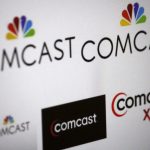
The planned merger between Time Warner and Comcast has been quashed. Back in February of last year the "most hated company in America" announced that it was planning to join forces with Time Warner to create a technology giant.
Today the company did an about-face, announcing that the merger is now off. The deal would have seen Comcast Corporation acquire Time Warner Cable for $45.2 billion leading to the creation of the largest cable company in the US.
Net Neutrality, Apple, and the future of TV
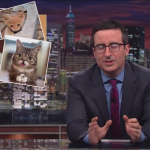
I’ve been hesitant to comment on the FCC’s proposed Net Neutrality rules until I could read them. You’ll recall the actual rules weren’t released at the time of the vote a couple weeks ago, just characterized this way and that for the press pending the eventual release of the actual order. Well it finally published the rules last week and I’ve since made my way through all 400+ pages (no executive summary commenting for me). And while there are no big surprises -- much less smoking guns -- in the FCC report, I think that taken along with this week’s Wall Street Journal story about an Apple over-the-top (OTT) video service the trend is clear that the days of traditional cable TV are numbered.
What booms through the FCC document is how much it’s written in response to the Commission’s loss last year in Verizon Communications Inc. v. FCC. Most of the more than 1,000 footnotes in the order refer to the legal defeat and place the FCC’s current position in that legal context. FCC lawyers have this time really done their homework, suggesting that it will be difficult for cable interests to win like they did last year.
Twitter lends its support to Net Neutrality campaign
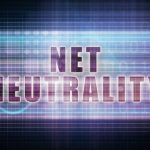
Many prominent groups and figures have given their backing to the fight for net neutrality. Today Twitter reveals why it supports the proposals put forward by the FCC chairman Tom Wheeler, just a few days ahead of a vote that will decide whether they will be adopted by the FCC. The aim is to "protect the open Internet as a place for innovation and free expression".
Twitter's public policy manager, Will Carty, says that protecting the open architecture of the internet is essential for the US to remain competitive and to allow freedom of speech. He says that providing a voice to those who would not otherwise have a platform is at the heart of Twitter, and this is just one of the reasons for supporting the net neutrality proposals.
How do US carriers fare at unlocking your smartphone?

The four-largest carriers in US have come up with a list of measures designed to make phone unlocking easier for their customers, following pressure from FCC and activist groups, among others. The deadline for enforcing these measures passed last week, so how do AT&T, Sprint, T-Mobile and Verizon fare today?
According to consumer rights activist Sina Khanifar, surprisingly to some, Verizon, which is the leading carrier in US, is the only player that implements all the measures. At the other end of the spectrum are T-Mobile and Sprint, which appear to be doing a shoddy job, only managing to implement half.
If your internet connection isn't at least 25Mbps, it's not broadband
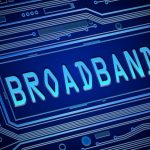
For a long time, the official definition of a broadband connection is one that delivers a download speed of at least 4Mbps. Now the FCC has increased the lower limit so any connection that has a download speed of less than 25Mbps and an upload speed below 3Mbps will no longer be considered a broadband connection.
If you look at your line stats and feel a little let down, you're far from being alone, and the FCC feels your pain. The Federal Communications Commission voted to increase the minimum speed as part of an ongoing effort to push ISPs into offering higher speeds. The reason? The modern web demands it.
What you should know about the E-Label Act
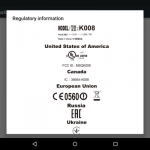
The FCC label on radio-equipped devices sold in US has been mandatory since 1973. By now, we have gotten used to seeing it, no doubt because there is usually nothing that we can do to hide it. But, as technology evolves, its physical presence is bound to cause some serious problems (not to mention that it spoils the look of some gorgeous devices).
However, in mid-July, a new bill, called the E-Label Act, was introduced to give companies that operate in US the option to feature an electronic FCC label on their radio-equipped products. And, after passing through Senate and Congress, President Obama just signed it. Here is what you should know about it.
Obama enters net neutrality debate with four rules for a free and open internet
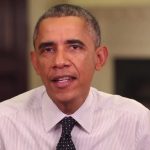
The net neutrality debate has been raging for some time and Barack Obama has stepped into the fray, voicing his support for a free and open internet. More than this, the president is calling for broadband to be reclassified under Title II of the Telecommunications Act which would give the FCC greater powers of regulation. His statement has come as bad news for cable companies who have expressed a desire to create a two-tiered internet.
But while some providers have suggested that they would like to be able to offer a faster service to customers willing and able to pay more money each month, Obama is calling for a largely unfettered internet. As well as eliminating the idea of fast lanes, he calls for no blocking of legal content, no throttling, and greater ISP transparency.
3 million comments prove people care about net neutrality
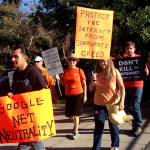
More than three million comments, from consumers, businesses and other organizations, have been submitted in response to the controversial US debate over net neutrality.
The controversy has arisen over whether Internet service providers, such as Comcast and Verizon, should be allowed to introduce fast lanes, delivering paid-for traffic to users more quickly.
Recent Headlines
Most Commented Stories
BetaNews, your source for breaking tech news, reviews, and in-depth reporting since 1998.
Regional iGaming Content
© 1998-2025 BetaNews, Inc. All Rights Reserved. About Us - Privacy Policy - Cookie Policy - Sitemap.